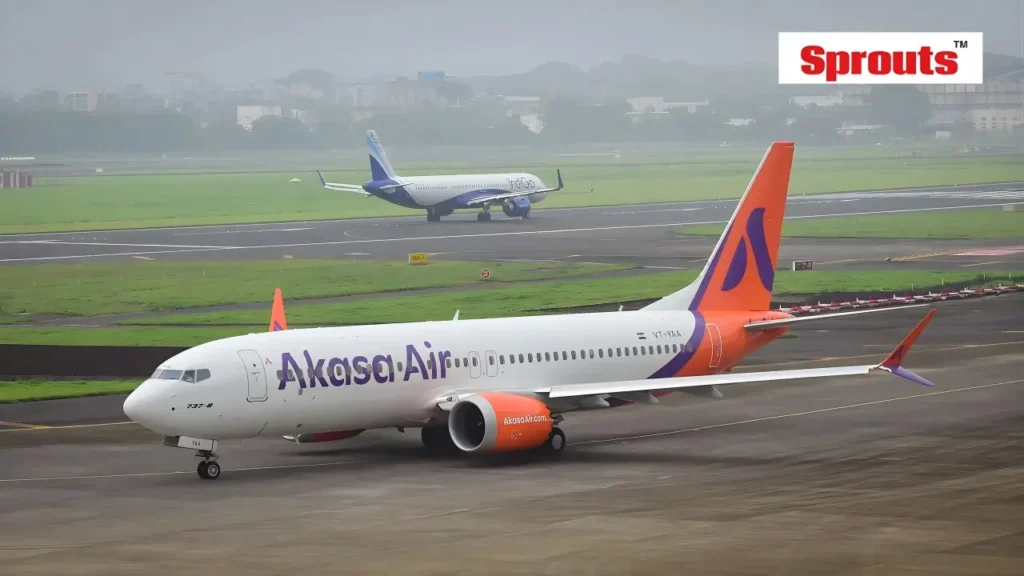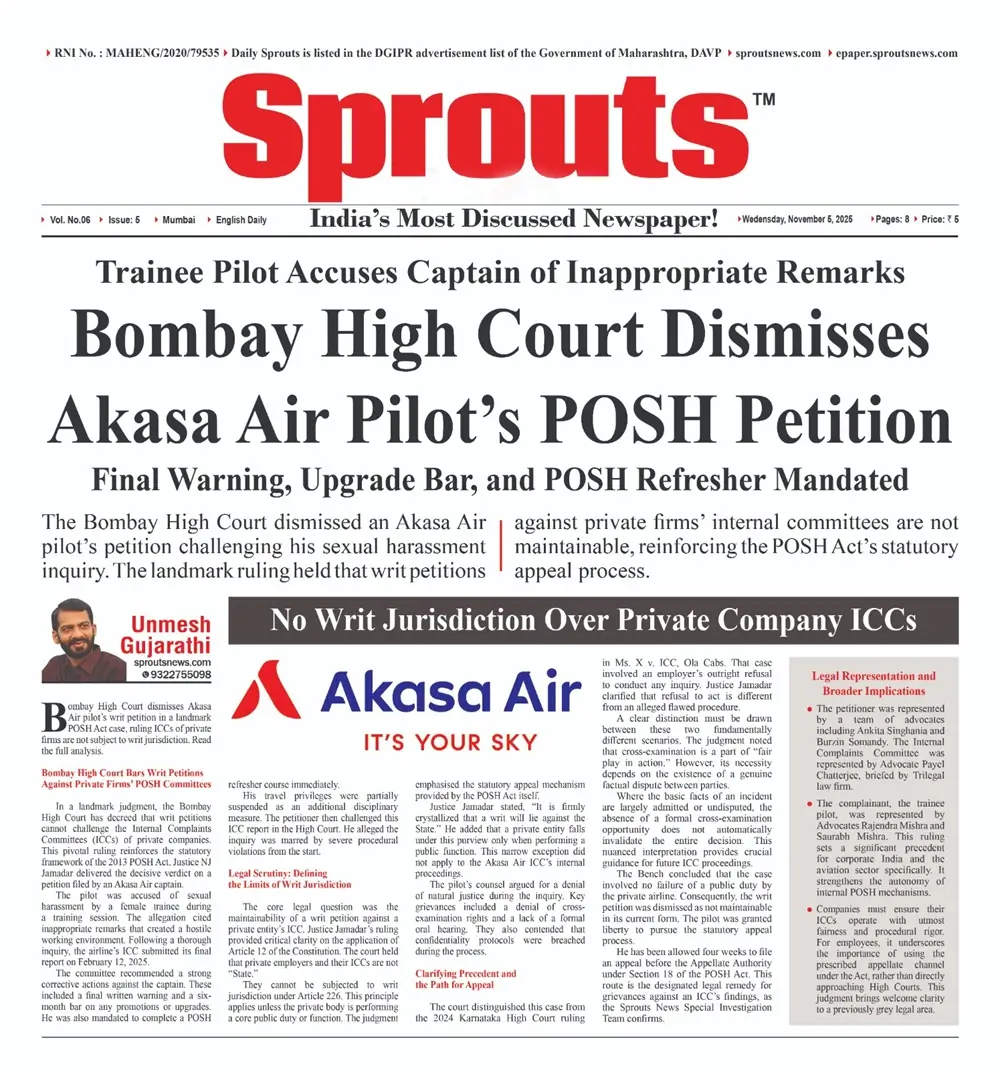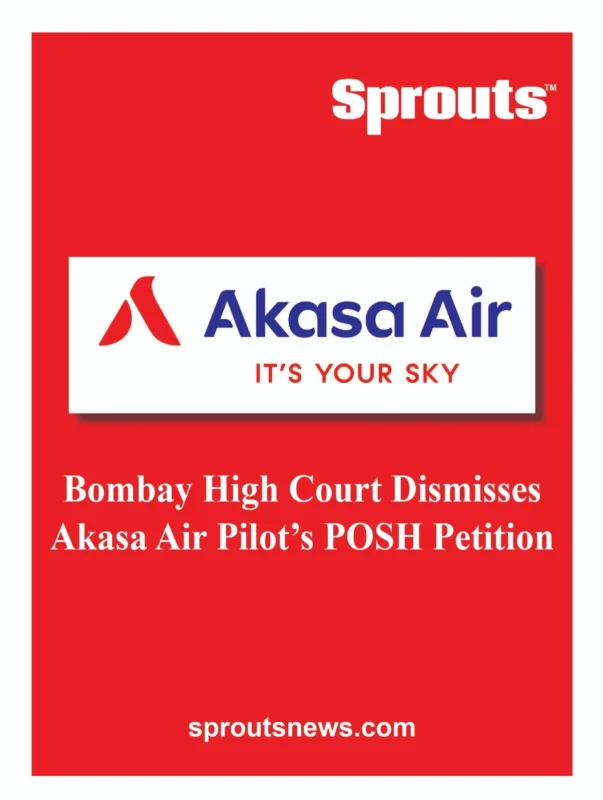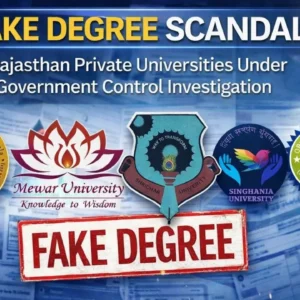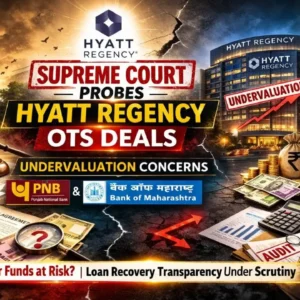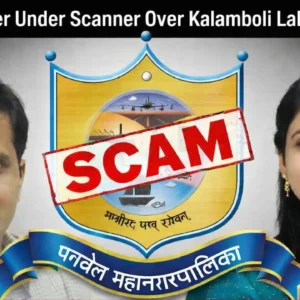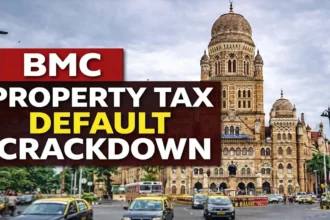Bombay High Court Dismisses Akasa Air Pilot’s POSH Petition in Landmark Ruling
• The Allegations: Akasa Air Trainee Pilot Accuses Captain of Inappropriate Remarks
• ICC’s Verdict: Final Warning, Upgrade Bar, and POSH Refresher Mandated
• Court’s Ruling: No Writ Jurisdiction Over Private Company ICCs
The Bombay High Court has dismissed a writ petition by an Akasa Air pilot challenging an Internal Complaints Committee (ICC) inquiry under the POSH Act, 2013. Justice N.J. Jamadar held that ICCs of private firms are not subject to writ jurisdiction and must follow statutory appeal routes. The case involved allegations of inappropriate remarks made by a senior captain toward a female trainee pilot, leading to disciplinary action and mandated POSH retraining.
- Bombay High Court Dismisses Akasa Air Pilot’s POSH Petition in Landmark Ruling
- • The Allegations: Akasa Air Trainee Pilot Accuses Captain of Inappropriate Remarks
- • ICC’s Verdict: Final Warning, Upgrade Bar, and POSH Refresher Mandated
- • Court’s Ruling: No Writ Jurisdiction Over Private Company ICCs
- Bombay High Court Bars Writ Petitions Against Private Firms’ POSH Committees
- Legal Scrutiny: Defining the Limits of Writ Jurisdiction
- Clarifying Precedent and the Path for Appeal
- Legal Representation and Broader Implications
Click Here To Download the News Attachment
Bombay High Court Bars Writ Petitions Against Private Firms’ POSH Committees
In a landmark judgment, the Bombay High Court has decreed that writ petitions cannot challenge the Internal Complaints Committees (ICCs) of private companies. This pivotal ruling reinforces the statutory framework of the 2013 POSH Act. Justice NJ Jamadar delivered the decisive verdict on a petition filed by an Akasa Air captain.
The pilot was accused of sexual harassment by a female trainee during a training session. The allegation cited inappropriate remarks that created a hostile working environment. Following a thorough inquiry, the airline’s ICC submitted its final report on February 12, 2025.
The committee recommended a strong corrective actions against the captain. These included a final written warning and a six-month bar on any promotions or upgrades. He was also mandated to complete a POSH refresher course immediately.
His travel privileges were partially suspended as an additional disciplinary measure. The petitioner then challenged this ICC report in the High Court. He alleged the inquiry was marred by severe procedural violations from the start.
View the Bombay High Court Petition File- Click Here
Legal Scrutiny: Defining the Limits of Writ Jurisdiction
The core legal question was the maintainability of a writ petition against a private entity’s ICC. Justice Jamadar’s ruling provided critical clarity on the application of Article 12 of the Constitution. The court held that private employers and their ICCs are not “State.”
They cannot be subjected to writ jurisdiction under Article 226. This principle applies unless the private body is performing a core public duty or function. The judgment emphasised the statutory appeal mechanism provided by the POSH Act itself.
Justice Jamadar stated, “It is firmly crystallized that a writ will lie against the State.” He added that a private entity falls under this purview only when performing a public function. This narrow exception did not apply to the Akasa Air ICC’s internal proceedings.
The pilot’s counsel argued for a denial of natural justice during the inquiry. Key grievances included a denial of cross-examination rights and a lack of a formal oral hearing. They also contended that confidentiality protocols were breached during the process.
Also Read: Mumbai’s ₹5,000 Crore Malad PAP Land Scam Exposed.
Clarifying Precedent and the Path for Appeal
The court distinguished this case from the 2024 Karnataka High Court ruling in Ms. X v. ICC, Ola Cabs. That case involved an employer’s outright refusal to conduct any inquiry. Justice Jamadar clarified that refusal to act is different from an alleged flawed procedure.
A clear distinction must be drawn between these two fundamentally different scenarios. The judgment noted that cross-examination is a part of “fair play in action.” However, its necessity depends on the existence of a genuine factual dispute between parties.
Where the basic facts of an incident are largely admitted or undisputed, the absence of a formal cross-examination opportunity does not automatically invalidate the entire decision. This nuanced interpretation provides crucial guidance for future ICC proceedings.
The Bench concluded that the case involved no failure of a public duty by the private airline. Consequently, the writ petition was dismissed as not maintainable in its current form. The pilot was granted liberty to pursue the statutory appeal process.
He has been allowed four weeks to file an appeal before the Appellate Authority under Section 18 of the POSH Act. This route is the designated legal remedy for grievances against an ICC’s findings, as the Sprouts News Special Investigation Team confirms.
Legal Representation and Broader Implications
The petitioner was represented by a team of advocates including Ankita Singhania and Burzin Somandy. The Internal Complaints Committee was represented by Advocate Payel Chatterjee, briefed by Trilegal law firm.
The complainant, the trainee pilot, was represented by Advocates Rajendra Mishra and Saurabh Mishra. This ruling sets a significant precedent for corporate India and the aviation sector specifically. It strengthens the autonomy of internal POSH mechanisms.
Companies must ensure their ICCs operate with utmost fairness and procedural rigor. For employees, it underscores the importance of using the prescribed appellate channel under the Act, rather than directly approaching High Courts. This judgment brings welcome clarity to a previously grey legal area.


